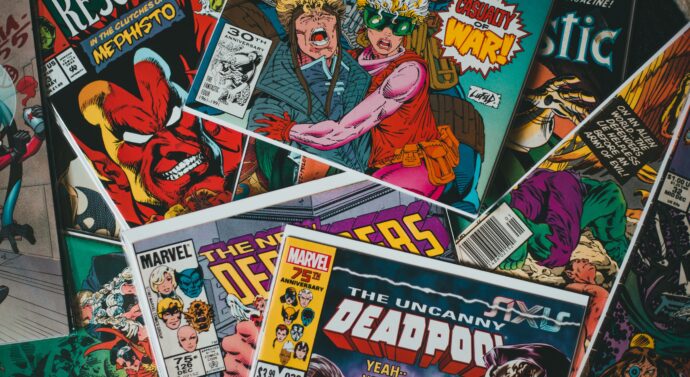
A review of “The Falcon and the Winter Soldier:” How Marvel’s newest show does more than most action movies
Community, Editorial May 3, 2021, Comments Off 77In Marvel’s new phase of media that made its debut with the popular Disney+ show “WandaVision,” they’ve taken on some different tones. To the casual viewer, this could mean new characters with new plotlines and seemingly saying goodbye forever to beloved characters like Steve Rogers or Tony Stark. This phase is also the first to feature television shows, such as “WandaVision” and the upcoming “Loki” in June 2021, and in March of this year, another show captivated fans for six weeks every Friday. That show is “The Falcon and the Winter Soldier.”
The series picks up after the events of “Avengers: Endgame” as Sam Wilson, the Falcon, and Bucky Barnes, the Winter Soldier, try to resume their lives. In the first episode, Wilson is denied a loan for his family despite his superhero status, and Barnes is in therapy while trying to make amends for his time as the Winter Soldier. Each man has his own problems that he faces before they eventually come back together in a shaky partnership to stop a resistance group called the Flag Smashers. Throw a new, government appointed Captain America and his partner Battlestar along with the villainous Zemo from “Captain America: Civil War” into the mix, and Wilson and Barnes have their hands full.
For six episodes, we watched as the reluctant partnership grew into one of genuine friendship as they battled inner demons and the assortment of challenges all around them. By the end of the season, Sam Wilson dons the costume and shield to become the real, new Captain America, much like many fans had predicted. In getting to that point, the show did something not many Marvel movies have done thus far: they tackled very real issues like racism in America.
From episode two when we see Wilson and Barnes confronted by the police, their aggression targeted at Wilson, a black man, to episode six when Wilson gives a speech to the cameras and government officials he just saved about his role as a black man in America donning the shield, a very white symbol, this show didn’t shy away from confronting the issues that should be confronted. The show became less about superheroes and their fight scenes and more about dissecting why a country won’t accept someone who doesn’t have “blond hair and blue eyes,” as Wilson puts it, as their hero.
There are a lot of instances in this show where it was character driven, such as Barnes’s struggle with his mental health after years of being someone else’s pawn. There was also the bombshell that there had been a black supersoldier for decades, and instead of him being celebrated like Rogers was, Isaiah Bradley was locked in prison and experimented on for years. These plots had me coming back week after week, hooked on the grittiness and realness of a genre I’d never before seen as anything close to real life.
I’m only a casual viewer of Marvel, and I had to do some research before even starting the show to understand what was going on. However, I’m glad I did because while I was expecting action-packed episodes with battles and super powers, I was more than pleasantly surprised to watch storied, complicated plotlines that made me feel like I knew these characters better than any Marvel characters I’d watched thus far. Marvel, in creating something relevant and important, has laid the foundation for a phase of entertainment as gripping and satisfying as “The Falcon and the Winter Soldier.” More than that, they’ve begun to unravel the long held belief that comic books and action movies can’t be taken seriously.
Article by Claire Ellerman